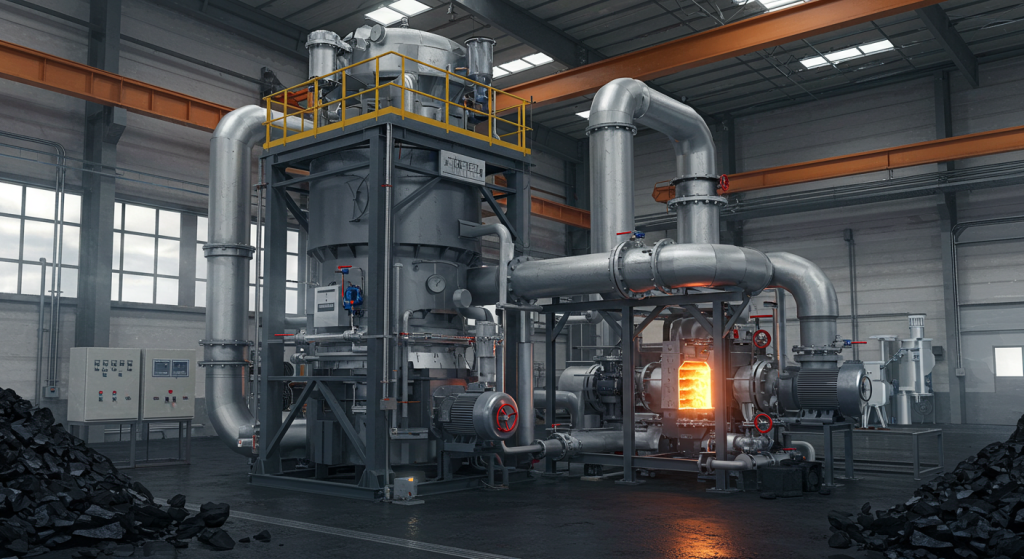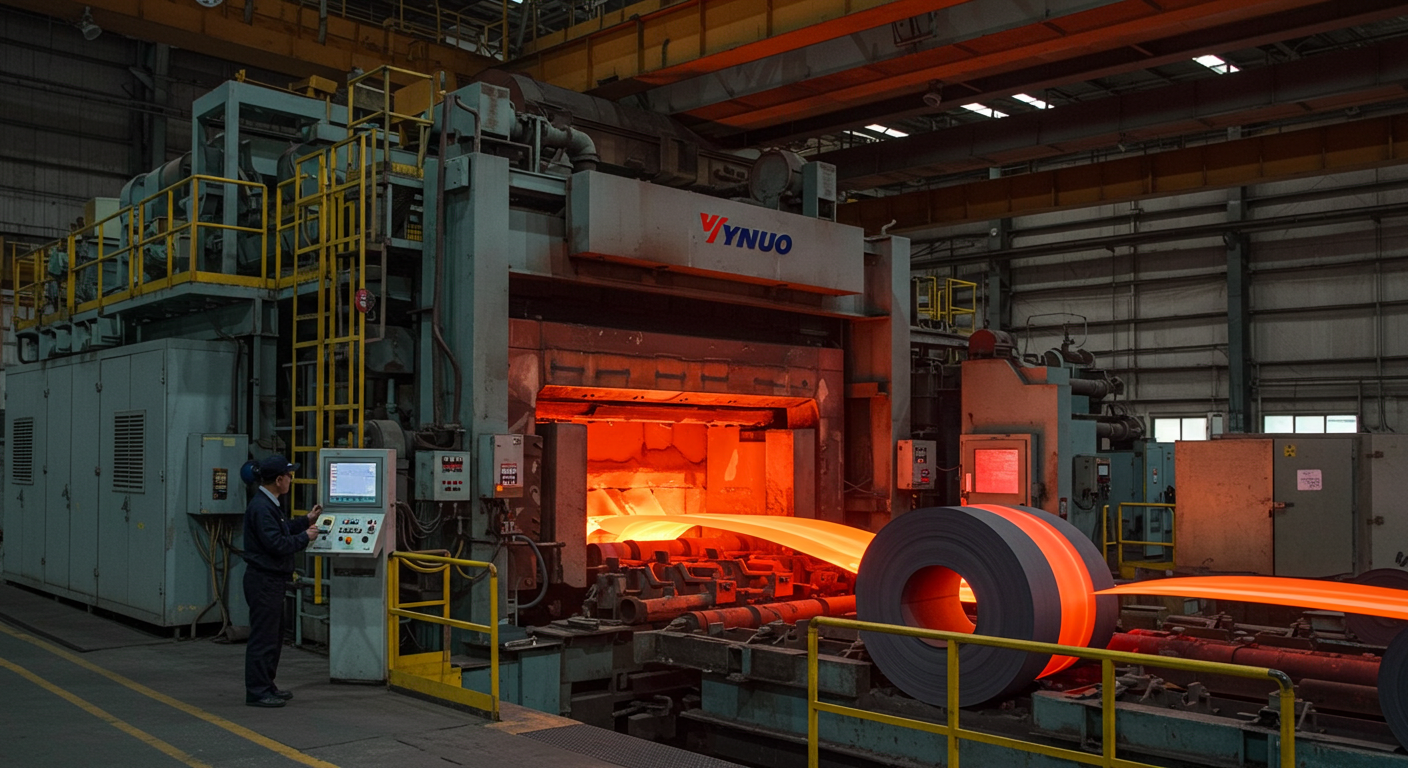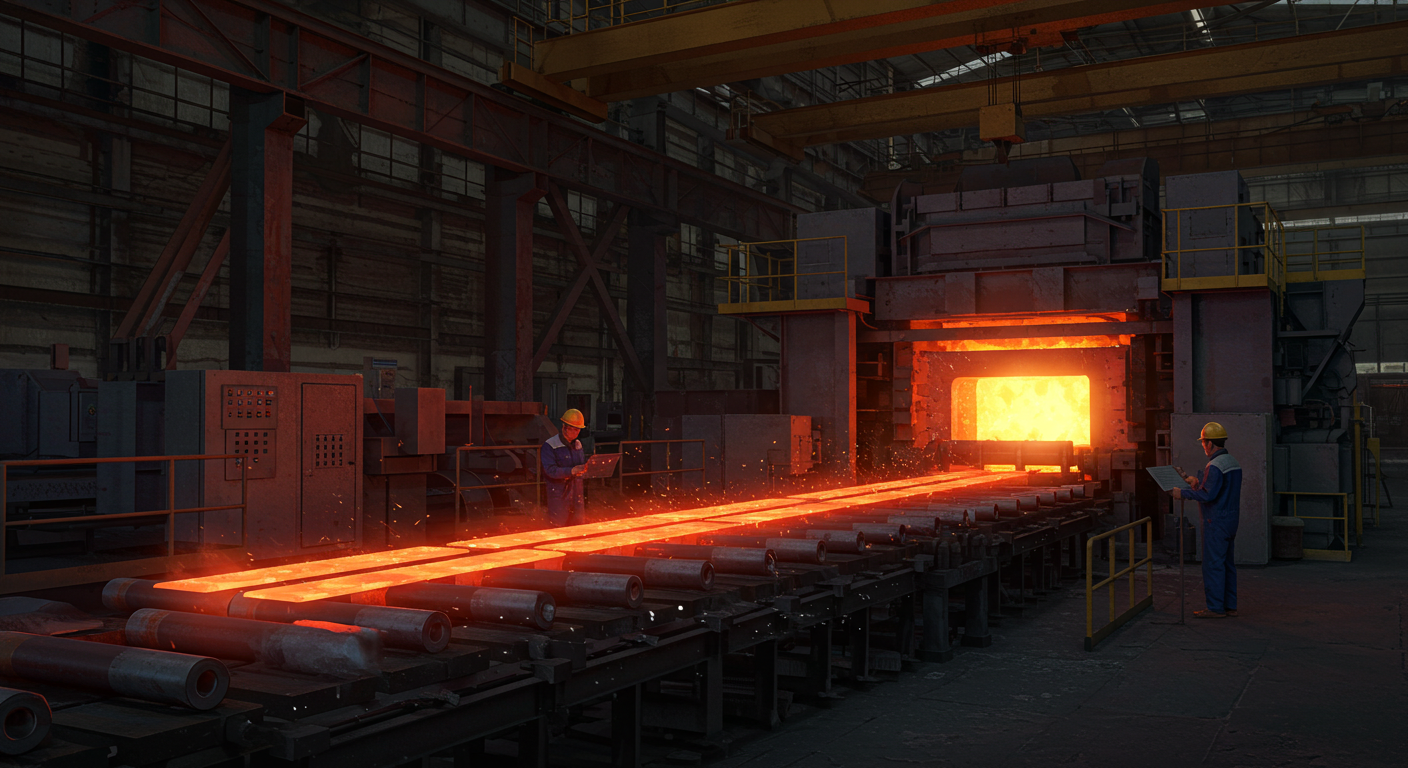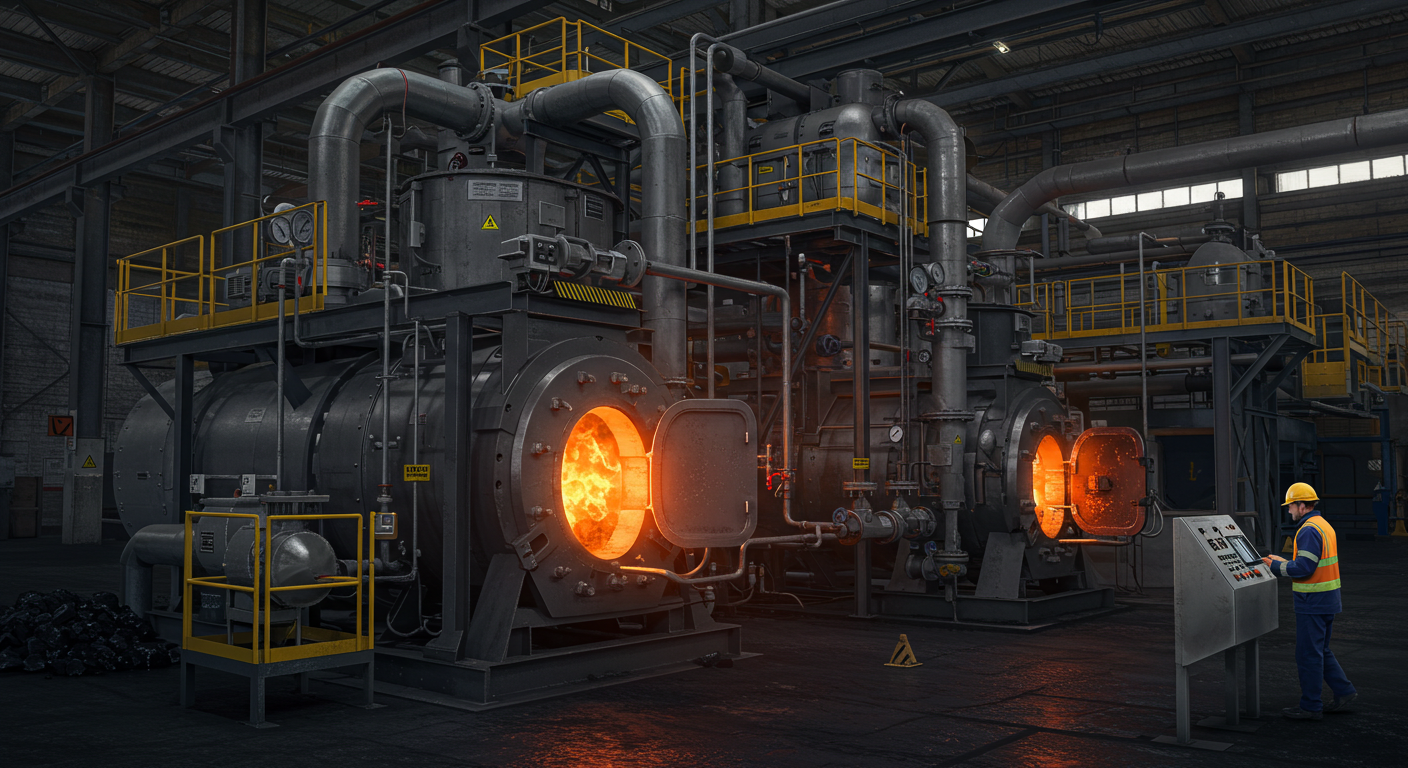
In the quest for efficient and sustainable industrial energy, coal gasifiers stand as a beacon of innovation, converting coal into a clean, versatile gas that fuels processes from steel forging to chemical synthesis. At Jiangsu Yinuo Thermal Energy Technology Co., Ltd., our state-of-the-art coal gasifiers redefine energy production, offering industries a pathway to cost-effective, high-performance heating. Unlike traditional coal combustion, gasification unlocks the potential of coal with minimal environmental impact, making it a cornerstone of modern manufacturing.
This guide dives into the intricacies of coal gasifier technology, its wide-ranging applications, and strategies to optimize performance, tailored for engineers, plant managers, and industry leaders. With over 13 years of pioneering expertise and patented advancements, Yinuo delivers solutions that shape the future of industrial energy. Explore our cutting-edge gasifiers at Our Products and discover how we’re powering progress with sustainable innovation.
What Is a Coal Gasifier?
A coal gasifier is an advanced industrial system that transforms coal into syngas—a mixture of carbon monoxide, hydrogen, methane, and other gases—through a thermochemical process called gasification. Conducted in a low-oxygen environment, gasification avoids full combustion, producing a fuel gas suitable for furnaces, turbines, or chemical feedstocks. This technology offers a cleaner, more efficient alternative to burning coal directly, reducing emissions and enhancing energy utilization.
Yinuo’s coal gasifiers are engineered for versatility, available in single-stage and two-stage models. Single-stage gasifiers produce a basic syngas for simpler heating applications, while two-stage gasifiers deliver cleaner, higher-quality gas for precision processes. Designs include fixed-bed, fluidized-bed, and entrained-flow systems, each suited to specific coal types and production scales. Fixed-bed gasifiers are ideal for small-scale operations with coarse coal, fluidized-bed systems handle finer particles, and entrained-flow gasifiers support large-scale, high-temperature applications. Integrated gas cleaning removes tar, sulfur, and ash, ensuring reliable performance. Learn more about our systems at Our Gasifier Products.
How Coal Gasifiers Work
Coal gasification occurs at 800–1500°C, where coal reacts with oxygen, steam, or carbon dioxide in a controlled environment. The process involves four stages: drying, pyrolysis, gasification, and char reaction. Drying removes moisture, pyrolysis releases volatile compounds, gasification converts carbon to syngas, and char reactions generate additional gas and heat. The resulting syngas is purified using filters, scrubbers, or catalytic converters before use.
Yinuo’s gasifiers employ sophisticated controls for efficiency. Distributed Control Systems (DCS) regulate temperature, pressure, and gas composition, while real-time sensors ensure optimal operation. Fixed-bed gasifiers feed coal from the top, with syngas exiting below, suitable for small plants. Fluidized-bed gasifiers suspend coal in a gas stream for faster reactions, while entrained-flow gasifiers inject pulverized coal for high-capacity production. Heat recovery systems, like those in our Regenerative Burner Technology Guide, capture waste heat, boosting efficiency. Maintenance, such as reactor cleaning and sensor checks, sustains performance. For tailored gasification solutions, contact us at Contact Us.
Types of Coal Gasifiers
Coal gasifiers are categorized by design, coal feed, and application:
Fixed-Bed Gasifiers
Coal is fed from the top, reacting with oxygen or steam at the base. Simple and cost-effective, they suit small-scale heating or power with coarse coal.
Fluidized-Bed Gasifiers
Coal particles are fluidized in a gas stream, enhancing reaction rates. Flexible for finer coal, they’re ideal for chemical synthesis or medium-scale power.
Entrained-Flow Gasifiers
Pulverized coal is injected with oxygen at 1400–1500°C, producing high-quality syngas for large-scale steel or chemical plants.
Single-Stage Gasifiers
These produce basic syngas with minimal processing, suitable for small furnaces or boilers, balancing cost and efficiency.
Two-Stage Gasifiers
Featuring dual reaction zones, they yield cleaner syngas with reduced tar, perfect for precision applications, per our Coal Gasification Technology Guide.
Integrated Gasification Combined Cycle (IGCC)
IGCC systems pair gasifiers with turbines for power generation, maximizing efficiency and reducing emissions.
Yinuo’s gasifiers are designed for performance and scalability. Explore our portfolio at Our Gasifier Products.
Applications of Coal Gasifiers
Coal gasifiers power diverse industrial processes, offering a flexible energy source:
Steel Production
Syngas fuels reheating furnaces for billets or slabs, enabling rolling or forging, as in our Steel Processing Furnaces Guide.
Chemical Synthesis
Syngas is a feedstock for ammonia, methanol, or synthetic fuels, critical for fertilizers and petrochemicals.
Power Generation
Syngas drives gas turbines or boilers for electricity, offering cleaner energy than coal combustion, suitable for industrial or utility plants.
Glass and Ceramics
Gasifiers provide heat for melting or firing, ensuring precision for glass containers or ceramic insulators.
Hydrogen Production
Syngas is processed to extract hydrogen for fuel cells or refining, supporting clean energy initiatives.
Local Manufacturing
Small gasifiers fuel dryers or kilns in regional plants, providing affordable energy for textiles or food processing.
For industry-specific solutions, visit Our Services.
Benefits of Coal Gasifiers
Coal gasifiers offer significant advantages:
Affordable Fuel Source
Coal’s abundance makes syngas cost-competitive, lowering energy expenses.
Reduced Emissions
Gasification emits fewer particulates and sulfur than coal burning, with cleaning systems enhancing compliance.
Flexible Applications
Syngas supports heating, power, and chemical production, adapting to diverse needs.
High Efficiency
Advanced designs recover heat, saving 30–40% energy compared to combustion.
Scalability
Systems range from small fixed-bed units to large IGCC plants.
Resource Utilization
Gasifiers process low-grade coal or biomass, maximizing resource use.
Yinuo’s gasifiers deliver these benefits, ensuring reliability. Discover them at Our Gasifier Products.
Common Challenges with Coal Gasifiers
Challenges require strategic management:
Syngas Impurities
Tar or sulfur can disrupt downstream processes, needing advanced cleaning.
Environmental Compliance
CO2 emissions require scrubbers or carbon capture to meet regulations.
Coal Variability
Inconsistent coal quality affects syngas output, necessitating pre-processing.
Component Durability
High-temperature reactors and filters wear quickly, requiring maintenance.
Operational Complexity
Gasifiers demand skilled operation, increasing training needs.
Safety Hazards
Syngas leaks pose risks, requiring robust safety systems.
Yinuo’s solutions mitigate these issues, at Our Services.
Maintenance Strategies for Coal Gasifiers
Maintenance ensures gasifier performance:
Routine Inspections
Every 1,000 hours, inspect reactors, filters, and valves for wear. Check for corrosion or leaks.
Gas Cleaning Maintenance
Clean filters and scrubbers biweekly, testing syngas purity monthly, per our Coal Gasification Technology Guide.
Reactor Maintenance
Inspect linings for erosion, cleaning slag biweekly to maintain efficiency.
Control System Calibration
Verify sensors and DCS settings quarterly for stable operation.
Component Cleaning
Remove ash from reactors weekly; clean heat exchangers for optimal heat transfer.
Safety Checks
Test leak detectors and emergency valves monthly, training staff via Our Services.
Planned Downtime
Schedule maintenance during low-demand periods, logging data to track health.
Contact Our Services for expert support.
Optimizing Coal Gasifier Performance
Enhance performance with:
Energy Optimization
Recover heat with regenerative systems, saving energy, per our Gas-Fired Furnace Guide.
Automation
DCS and SCADA systems streamline control, reducing errors.
Feedstock Management
Blend coals for consistent syngas, per our Coal Gasification Technology Guide.
Process Optimization
Tune reaction conditions for specific outputs, like high-methane syngas.
Upgrades
Use Yinuo’s advanced reactors, at Our Gasifier Products.
Training
Train operators, via Our Services.
Choosing the Right Coal Gasifier
Consider:
- Application: Chemical synthesis needs two-stage gasifiers; power suits IGCC.
- Scale: Large plants use entrained-flow; small use fixed-bed.
- Coal Type: Bituminous suits fluidized-bed; anthracite fits fixed-bed.
- Emissions: Add scrubbers for compliance.
- Budget: Balance cost with efficiency.
Explore Yinuo’s gasifiers at Our Gasifier Products or consult at Contact Us.
Future Trends in Coal Gasifier Technology
Trends include:
- Automation: IoT optimizes syngas production.
- Sustainability: Biomass co-gasification reduces emissions.
- Compact Systems: For small plants.
- AI Maintenance: Predictive analytics cut downtime.
- Carbon Capture: CCS meets regulations.
Yinuo leads with innovative designs, at Our Gasifier Products.
Conclusion
Coal gasifiers unlock coal’s potential, producing syngas for steel, chemicals, and power. Jiangsu Yinuo’s gasifiers, with 13 years of expertise, deliver efficiency and sustainability. From fixed-bed to IGCC systems, our solutions meet diverse needs. Maintenance and optimization ensure performance, while trends like CCS and automation drive the future. Explore our gasifiers at Our Gasifier Products. For support, visit Our Services or Contact Us. Choose Yinuo for innovative gasification solutions.
FAQ
What fuels can gasifiers process?
Coal, biomass, or waste, per our Steel Processing Furnaces Guide.
Single-stage vs. two-stage gasifiers?
Two-stage produce cleaner syngas, per our Coal Gasification Technology Guide.
Maintenance schedule?
Every 1,000 hours, per our Heat Treatment Solutions Guide.
Efficiency tips?
Use regenerative systems, per our Regenerative Burner Technology Guide.
How to select a gasifier?
Contact Yinuo at Contact Us.







